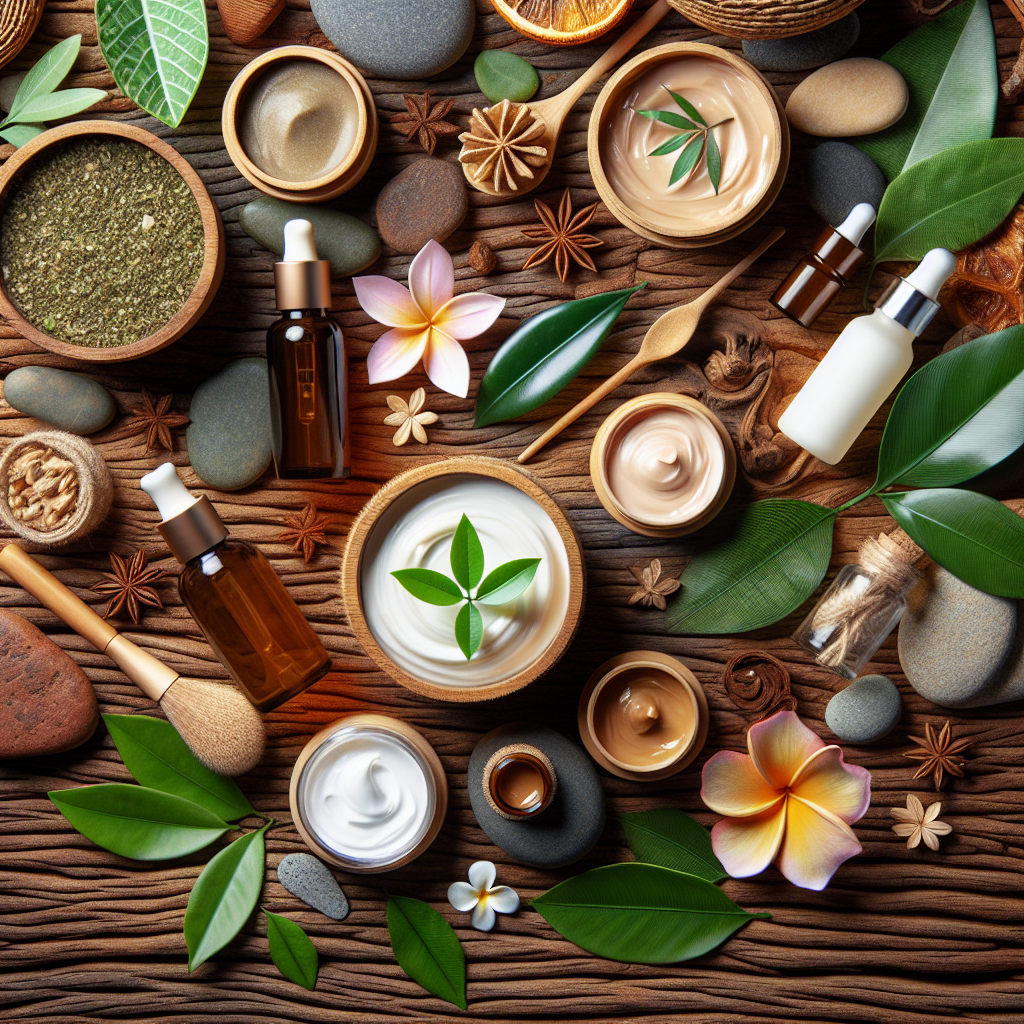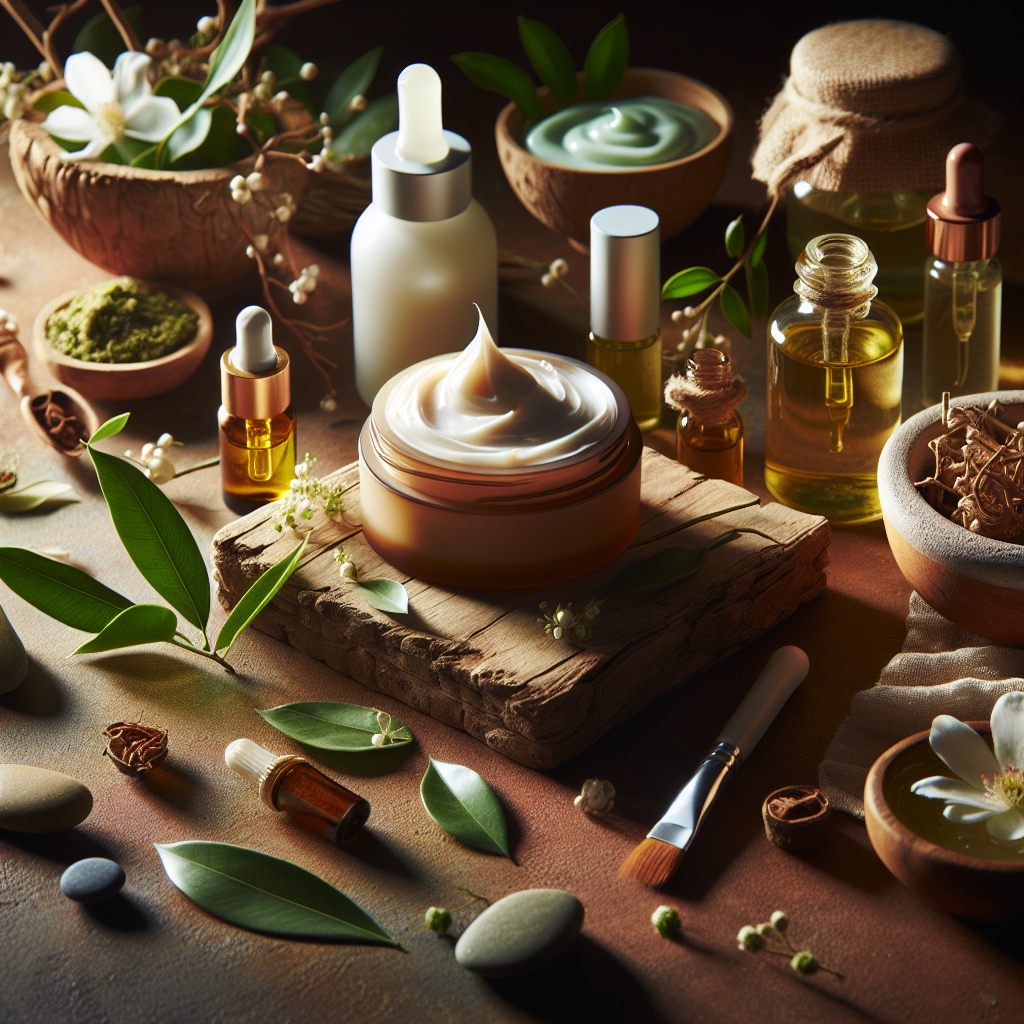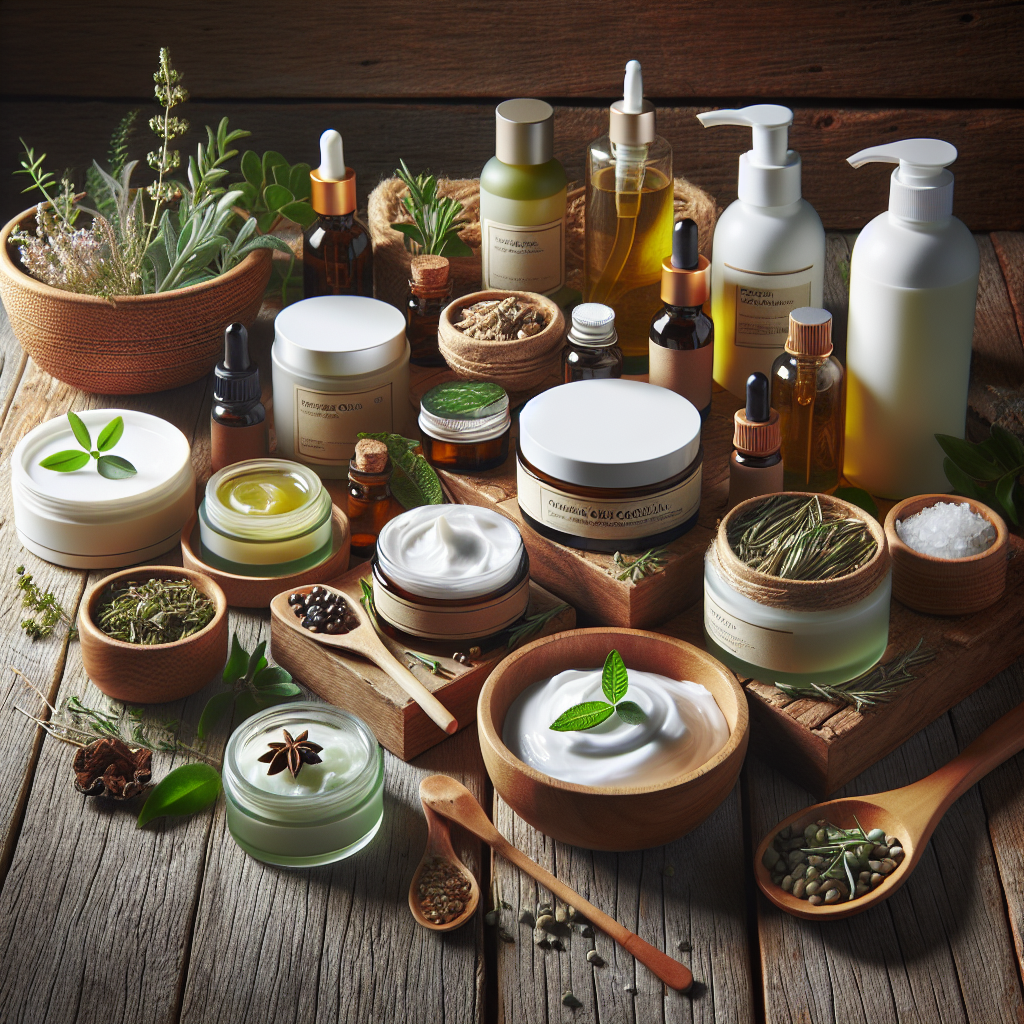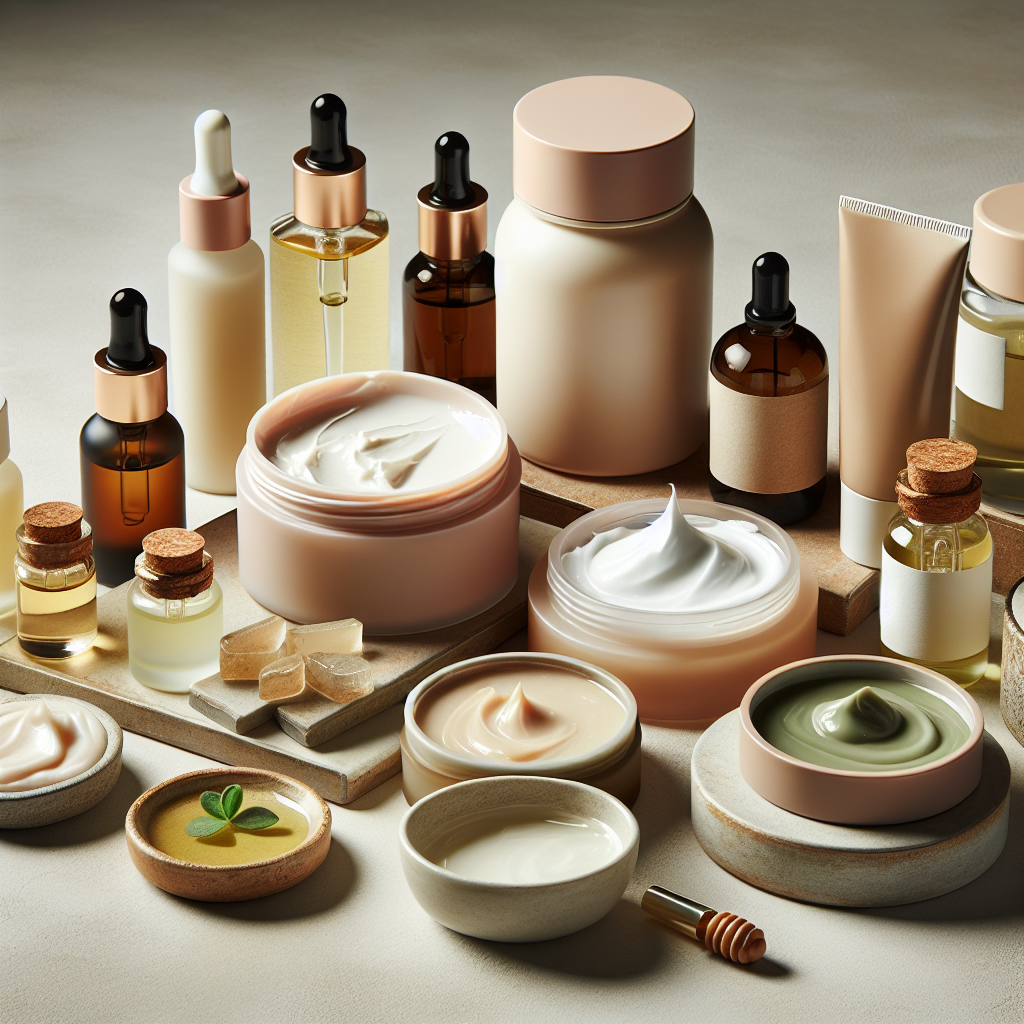Embarking on the journey of natural beauty, one often encounters the pivotal question: are organic skincare products good? Organic skincare is more than a trend; it's a lifestyle choice that aligns with the core values of Lady Mascheria Natural Beauty. We believe that living in harmony with nature not only nurtures the soul but also the skin. Harnessing the power of natural ingredients, organic skincare promises a gentler approach to beauty, free from harsh chemicals and synthetic additives.
Organic skincare products are crafted with ingredients that are grown without the use of pesticides, herbicides, synthetic fertilizers, genetically modified organisms (GMOs), and other additives or chemicals. This means that they are not only kinder to your skin but also to the environment. The benefits of using organic skincare range from reducing the risk of skin irritation and allergies to providing nutrients that support the skin's natural functions.
At Lady Mascheria Natural Beauty, we encourage our readers to visit our website to learn more and get started today! Explore our curated selection of organic products that embrace the scents of nature and the belief that living naturally is a divine gift. Click here to unveil a world where beauty and wellness go hand in hand, and discover how organic skincare can elevate your daily routine.
Understanding Organic Skincare Certifications

Navigating the world of organic skincare can sometimes feel like traversing a labyrinth of claims and labels. Understanding organic skincare certifications is crucial in identifying products that are truly natural and beneficial for the skin. These certifications are provided by various organizations and ensure that the products meet strict standards regarding ingredient sourcing, formulation, and manufacturing processes.
Among the most recognized certifications is the USDA Organic label, which indicates that the product contains at least 95% organic ingredients. Similarly, the ECOCERT label requires that a minimum of 95% of the plant-based ingredients and 10% of the overall ingredients by weight come from organic farming. Other notable certifications include COSMOS Organic, NATRUE, and the Soil Association, each with its own set of rigorous criteria to guarantee the organic integrity of skincare products.
When shopping for organic skincare, look for these certifications on product packaging to ensure you're choosing items that align with environmental and health-conscious standards. By selecting certified organic skincare, consumers can enjoy the peace of mind that comes from knowing they are applying pure, earth-friendly ingredients to their skin. As these standards vary across different countries and organizations, it is essential to familiarize oneself with the specific requirements and meanings behind each certification to make informed decisions that resonate with personal values and skin care needs.
The Impact of Organic Ingredients on Skin

The skin, our body's largest organ, acts as a barrier but also absorbs a significant portion of what we apply to it. This is where the impact of organic ingredients comes into the spotlight. Organic skincare products, teeming with natural components, are often rich in antioxidants, vitamins, and minerals that are essential for maintaining healthy skin. These ingredients are grown without the use of synthetic pesticides and fertilizers, making them free from potentially harmful chemicals that can be absorbed into the bloodstream.
For instance, organic jojoba oil mirrors the skin's natural sebum, offering deep moisturization without clogging pores. Aloe vera, known for its soothing properties, is packed with enzymes, antioxidants, and vitamins A and C which can help to reduce inflammation and facilitate skin repair. Shea butter, another powerhouse ingredient, is celebrated for its moisturizing and nourishing benefits, and when sourced organically, ensures that its healing properties are preserved without contamination from toxic substances.
Moreover, the use of organic ingredients supports the skin's natural healing processes, enhancing its ability to regenerate and protect itself. This can lead to a noticeable improvement in skin texture and tone, a reduction in irritation and allergic reactions, and a decrease in the risk of developing long-term health issues associated with the absorption of synthetic chemicals. The emphasis on pure, organic ingredients not only nurtures the skin but also aligns with a sustainable lifestyle, contributing to the overall wellbeing of our planet and ourselves.
Comparing Organic vs Synthetic Skincare Products

The debate between organic and synthetic skincare products centers around the ingredients used and their effects on the skin and environment. Synthetic skincare often includes man-made chemicals, such as parabens, sulfates, and phthalates, which are designed to enhance the product's texture, scent, and shelf-life. While these additives may provide short-term benefits, they have raised concerns regarding their potential impact on health and the ecosystem.
Organic skincare products, on the other hand, use naturally-derived ingredients, avoiding the controversial chemicals found in their synthetic counterparts. They leverage the power of plants and minerals that have been used for centuries in traditional skincare remedies. Proponents argue that because these ingredients are from nature, they are more compatible with our skin and less likely to cause irritation or harm.
It's important to note that not all synthetic ingredients are harmful; many are safe and effective. Moreover, the term 'organic' isn't a guarantee of safety, as natural substances can also be irritants or allergens for some skin types. Consumers must look beyond the labels and understand the specific ingredients and their concentrations in products. The key difference lies in the source and processing of these ingredients, with organic products typically undergoing minimal processing to maintain the integrity of the natural components.
Ultimately, the choice between organic and synthetic skincare products should be informed by individual skin type, concerns, and personal values regarding health and environmental sustainability. By comparing the two, consumers can make choices that align with their desire for holistic wellbeing and a more natural lifestyle.
Personal Stories: Real Results with Organic Skincare
Engaging with personal narratives offers compelling insights into the efficacy of organic skincare. These accounts often highlight dramatic transformations that speak to the potent benefits of natural ingredients. Real results are showcased through a myriad of customer testimonials, before-and-after images, and detailed recountings of skin rejuvenation journeys.
One such story might begin with an individual struggling with sensitive skin, plagued by reactions to harsh chemicals found in conventional products. After switching to an organic skincare regimen, they notice a marked improvement in their skin's texture and a reduction in irritations. These stories commonly emphasize how organic products, enriched with soothing botanicals like chamomile and aloe vera, have restored skin's balance and vitality.
Another account may describe the experience of someone combating premature aging who discovers the regenerative properties of antioxidants and essential fatty acids present in organic formulations. They witness fine lines softening and an enhanced youthful glow, attributing these changes to the nutrient-rich, plant-based ingredients that support skin's natural repair processes.
It is these personal stories that resonate with readers, providing relatable evidence of organic skincare's transformative power. They underscore the principle that embracing nature in our skincare routine can lead to not only healthier skin but also an enriched sense of well-being. Stories like these inspire others to explore the potential of organic skincare and to find their own path to natural beauty.
Making the Switch to Organic Skincare: A Guide

Transitioning to an organic skincare routine is a deliberate choice towards embracing nature's purest essences for beauty and health. If you are poised to make this switch, it is crucial to understand how to integrate these products seamlessly into your daily regimen. Start by identifying your skin type and concerns to select products tailored to your needs, such as oil-based moisturizers for dry skin or tea tree oil formulations for acne-prone complexions.
Begin replacing products one at a time, perhaps starting with items that stay on your skin the longest, like moisturizers or serums. This gradual approach not only prevents overwhelming your skin but also allows you to gauge the effectiveness and adaptability of each organic product.
Research is paramount; look for certifications to ensure the authenticity of organic claims. Reputable certifications include the USDA Organic Seal or Ecocert, both of which validate that the products contain a high percentage of organic ingredients and are free from harmful synthetic additives.
It's also important to note that organic skincare products often have a shorter shelf life due to the absence of preservatives. This means purchasing in smaller quantities and paying attention to expiration dates to ensure the potency and safety of the products you apply to your skin.
As you embrace this journey towards natural living, remember that Lady Mascheria Natural Beauty is here to guide you every step of the way. Visit our website to learn more and get started today! Embrace the scents of nature and the confidence that comes with using products that are kind to your skin and the environment.
